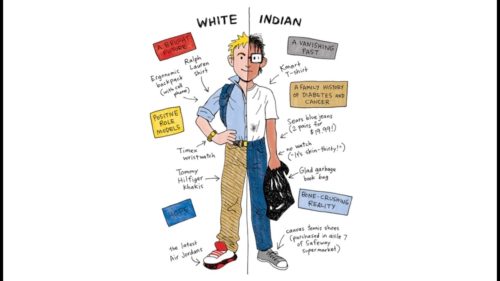Welcome to a special birthday edition of the reading list, since I celebrated my birthday yesterday! Does that change my reading habits? Eh, not really. I suppose this list includes more fiction and abstract texts. But, that’s pure coincidence.
Let’s see what we’ve got this month.
Sherman Alexie – The Absolutely True Diary of a Part-Time Indian
On paper, Alexie wrote a book outside my usual range. It’s a first person story about a teenager built largely around that teenager’s cartoon sketches of his life.
But when it goes well, it goes well. And this book goes well. Alexie tells the story of a teenage boy on a Spokane Indian Reservation. Through the teen format, he presents a wide range of important topics in a short space. But he takes as his central theme the struggles of an overachieving Native American teenager in a world that denies him of some opportunities…and then gives others only begrudgingly.
Jonathan Allen and Amie Parnes – Lucky
I don’t usually read books on presidential campaigns. At least not ones written by reports. But I made an exception for this book because I enjoyed Allen and Parnes’ book on the 2016 Clinton campaign. Did they strike gold twice?
Not exactly. I guess it’s tougher to write about a winning campaign than a losing one. Overall, Allen and Parnes provide competent coverage. However, I didn’t learn as much from this one. Allen and Parnes focus mostly on the primaries in this book, which makes sense given their theme. Biden in many ways got ‘lucky’ during the primaries. He relied, among other things, on Democratic Party fear of Bernie Sanders.
But the theme doesn’t work well for the general election. Biden polled ahead of Trump from start to finish. His win shouldn’t have surprised us.
Ernest Cline – Ready Player Two
Ready Player One roared out of the gate as both a successful debut novel and film. It caught some flak for its use of nostalgia, particularly in the context of certain social justice issues concerning the film industry. For the most part, I thought Cline’s first novel (and Spielberg’s film) got caught in a bad place at a bad time. The book relied far less on nostalgia than claimed, and even the film did a decent job laying out the broader (and generally quite plausible) sci-fi dystopian future.
And next comes the sequel – Ready Player Two. It actually does fit the picture critics painted of the first one. It’s not that it’s a bad book. It’s not. I enjoyed it, and I won’t argue that you shouldn’t read it. But the book feels so…unnecessary. In this one, Cline dives completely into nostalgia, basically ignoring the broader fictional universe he built in the first one. No major world problems or issues get solved. We find out little more about the (real, not virtual) world the characters inhabit.
Connie Willis – To Say Nothing of the Dog
I wrote about the first book in Willis’s Oxford Time Travel series in my previous reading list. So, I moved on to the second! Unlike the very serious – and a bit uncanny – first book, Willis takes a lighthearted approached in the second. Here we find more situational comedy and timeline confusion.
In short, Willis writes a story about an eccentric American donor who takes over Oxford’s history department and demands that time-traveling historians go back to the past to locate an object from a British church. While most of the historians travel to the World War II era, the story follows one who travels to Victorian England.
Along the way, we learn a lot about the Victorian era while the historian struggles to fix any timeline discrepancies. Willis gives us another good read.
Ludwig Wittgenstein – Culture and Value
I recently re-read Wittgenstein’s Philosophical Investigations. Culture and Value is a collection of remarks found after Wittgenstein’s death. The remarks cover a wide range of his life and career. There’s probably not a great deal to say about these remarks, other than the fact that they’re probably best seen as supplemental material for someone looking deeper into Wittgenstein’s biography or personal life.
